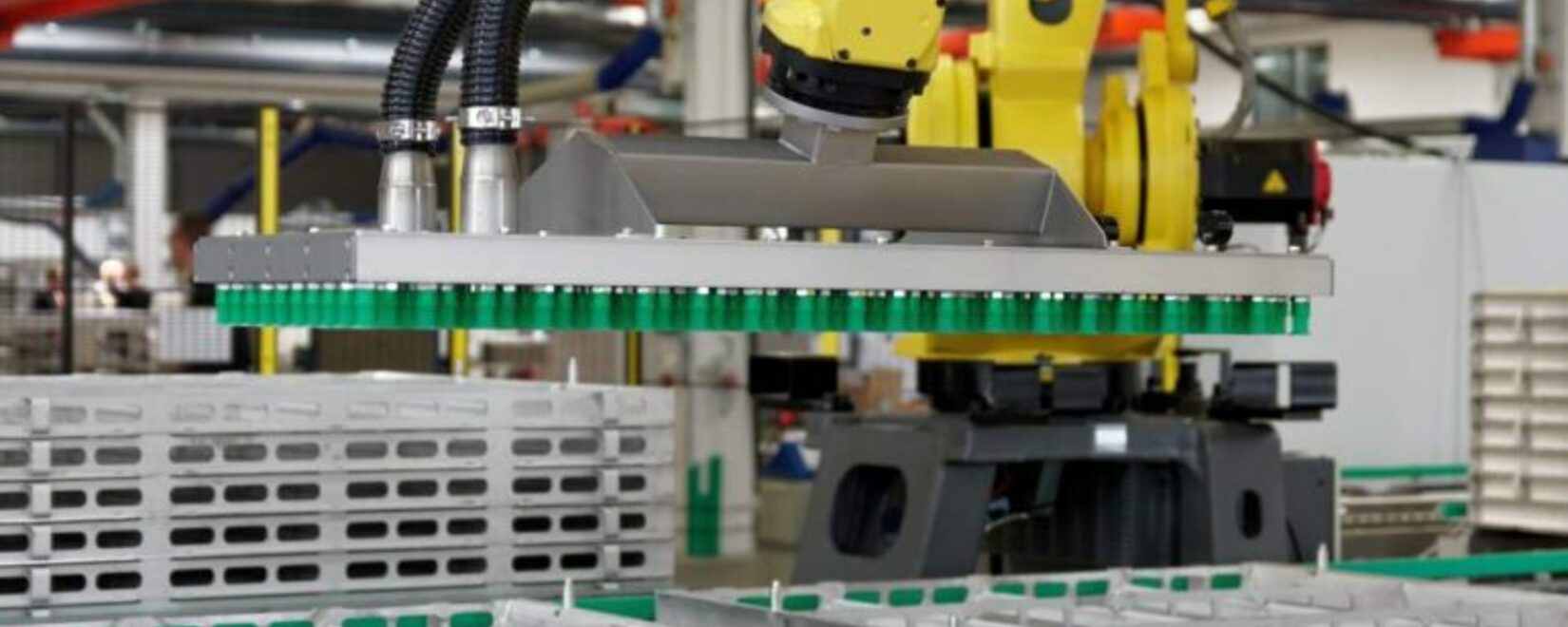In food production, automated lines are increasingly used. As reported by "Rossiyskaya Gazeta" («RG»), the share of robotics in the food industry currently stands at 12-15%.
The use of robots in this industry is extensive. For example, they are used for cutting meat, which is especially valuable as it avoids human presence in refrigerated or frozen chambers. Moreover, such robots have computer vision and can automatically determine the cutting location. Similar technology is used by sorting robots, which can quickly sort vegetables and fruits by size, color, and other characteristics using special suction cups or grippers, - says the founder of Mirey Robotics, Andrey Natashkin.
The most popular application is slicing bread, sausages, delicacies, vegetables, and fruits using robots. Unlike humans, these machines can work around the clock and ensure high accuracy, guaranteeing consistently high quality of the products produced. The market for robotic systems in the food industry, according to the analytical agency Research and Markets, is $2 billion and could grow to $6 billion by 2031, - Natashkin continues.
In the development of specialized technological solutions, examples presented at the international forum INNOFOOD 2023 can be cited: the use of closed fermenters in precision fermentation, ovens-steam convection ovens with artificial intelligence for simultaneous preparation of multiple high-quality dishes, mobile mushroom farms, and express tests for diagnosing diseases of agricultural crops. In addition, new food products were presented, such as amaranth oil and flour, wheat juice, red and black rice, as well as plant-based alternatives to meat and milk, - notes ethical food expert Vladimir Ilyichev in an interview with "RG".
The volumes of innovations are required for products that are most in demand by modern people. According to eWorldTrade, by 2023, the top 10 most consumed products include rice, meat, milk, corn, soybeans, eggs, grain, bread, cereal, and seafood. Plant-based analogs of animal products are also becoming increasingly popular due to the growing number of supporters of ethical eating, the expert points out.
Many companies are currently focusing on the ecological aspect. One of the innovative trends in the food industry is the reduction of plastic use in food packaging and its replacement with recyclable and biodegradable alternatives, notes Olga Krasnikova, the production director of "PROGRESS" company.
Modern businesses are also interested in technologies that help reduce the volume of food waste in production. Therefore, experts note the growing popularity of portion formats, which reduce the likelihood of excess food waste, says co-founder of the capsule coffee brand Saint Coffee, Alla Markina.
In her opinion, the need for innovation development and implementation is influenced by multiple factors, including consumer expectations that define new trends in the production, storage, and quality control of food products. Production is affected by consumer lifestyles, socio-economic, cultural, political, and environmental factors.

 Trading platform
Trading platform 
 Monitoring
Monitoring  Express applications
Express applications 
 Fork Work
Fork Work 
 Service
Service  News
News  Directory
Directory 
